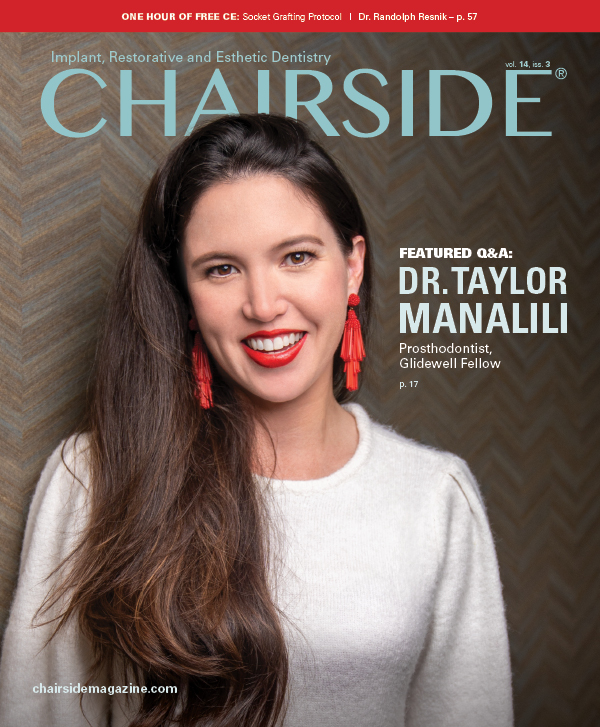Product Spotlight: BruxZir™ Adjustment & Polishing Kit

With extraordinary strength and lifelike esthetics, BruxZir® Solid Zirconia is the No. 1 prescribed brand of full-contour zirconia in North America. The BruxZir™ Adjustment & Polishing Kit has been specially developed to provide the instrumentation needed to make chairside adjustments to monolithic zirconia restorations and achieve optimal results. The tools are embedded with a rich concentration of fine diamonds designed for use on zirconia. To maximize convenience, the new and improved kit now includes two polishing discs — making it more effective than ever before.
In cases where chairside modifications are made to the occlusal or proximal contacts of a zirconia restoration, the surface becomes rough. A roughened restoration has the potential to cause wear on opposing dentition over time. On the other hand, highly polished zirconia has been proven to be extremely kind to the opposing dentition. Polishing zirconia after adjustment will reestablish smooth surfaces to promote long-term oral health and esthetics, and help maintain the structural strength of the material.1-5
Polishing zirconia after adjustment will reestablish smooth surfaces to promote long-term oral health and esthetics, and help maintain the structural strength of the material.
Follow This Basic Protocol to Achieve Lifelike Results:
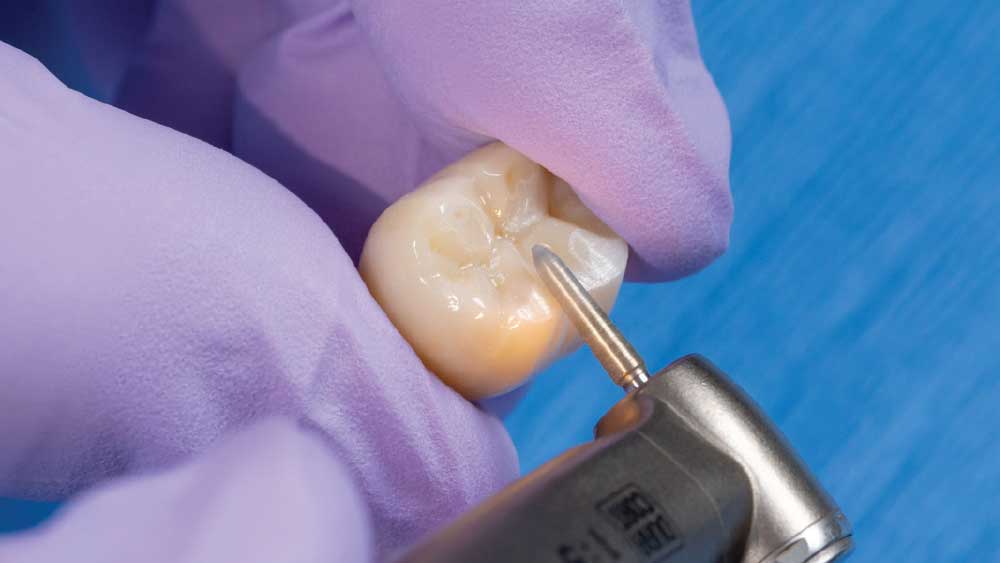
If adjustments are necessary, the burs are recommended. For adjusting fossa, the round bur should be used. The tapered bur is most effective for adjusting cusps or proximal contacts, and the football-shaped bur is best for adjusting the occlusal surfaces of posterior teeth and the lingual surfaces of anterior teeth.
To Use Polishing Cups:
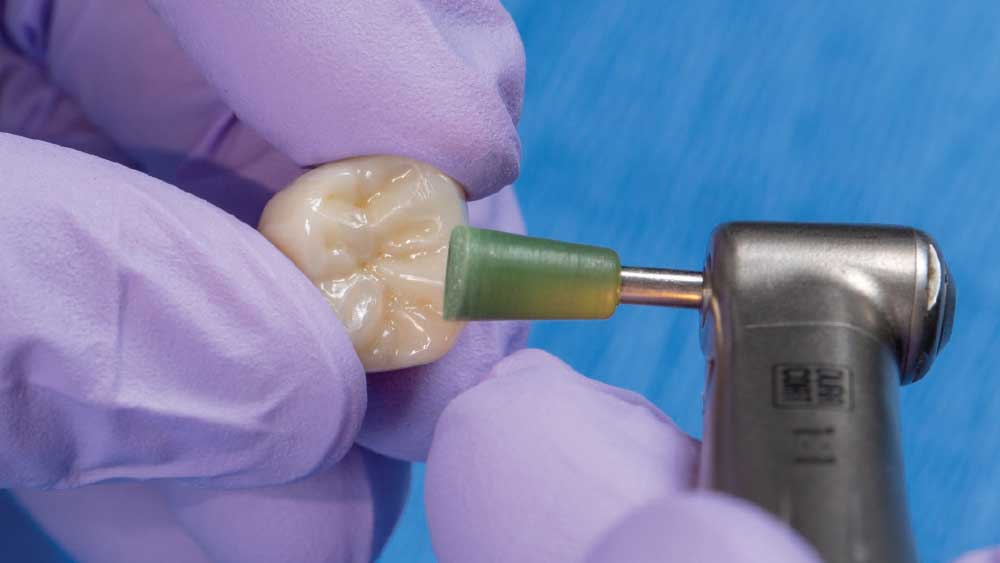
1. Using light pressure and no water, pre-polish with the green cup to remove abrasions left by diamonds during adjustments. This cup can also be used alone for minor adjustments.
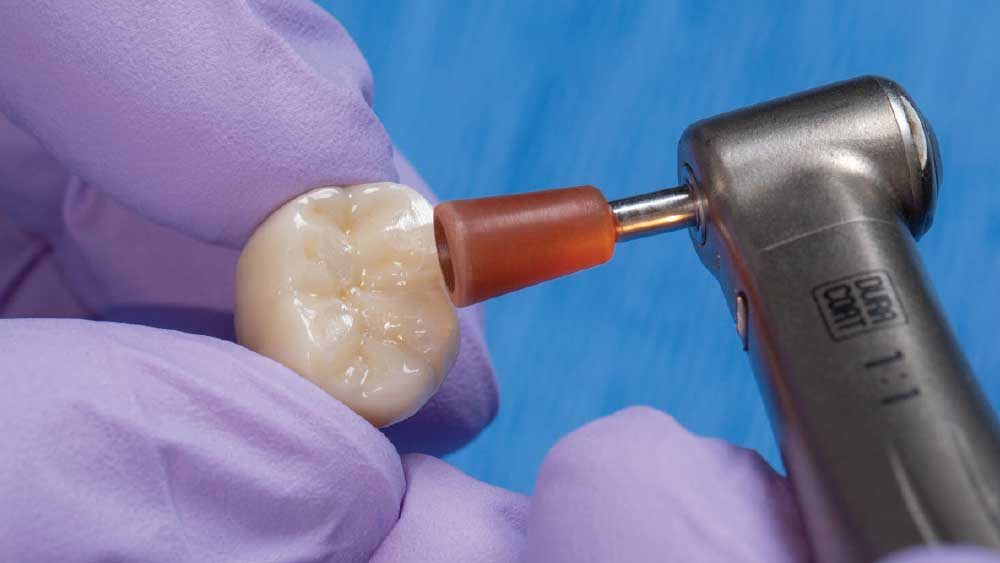
2. Continue with the brown cup until a glossy look emerges on the adjustment areas.
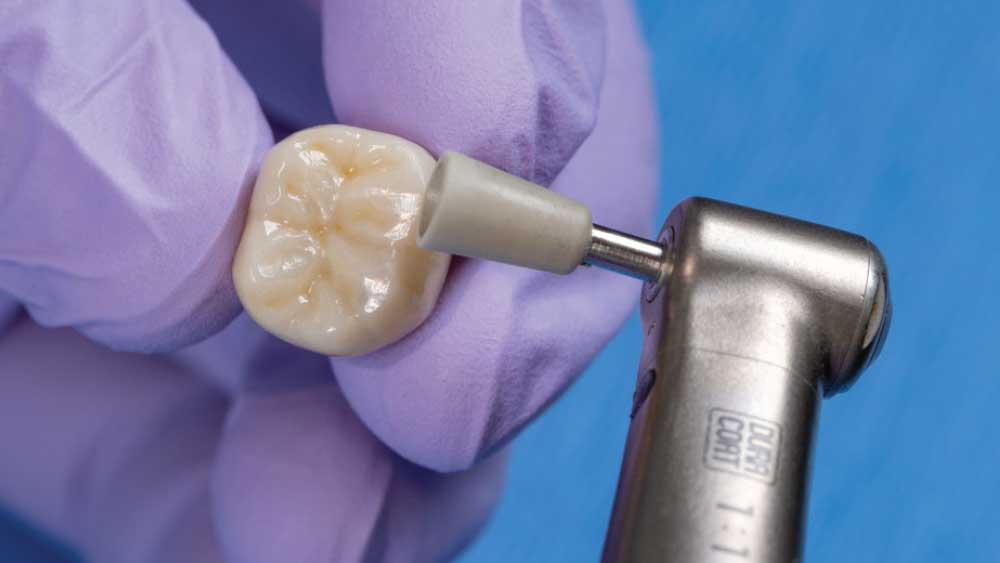
3. Use the white cup with light to medium pressure to achieve a “wet” shine.
To Use Polishing Wheels:
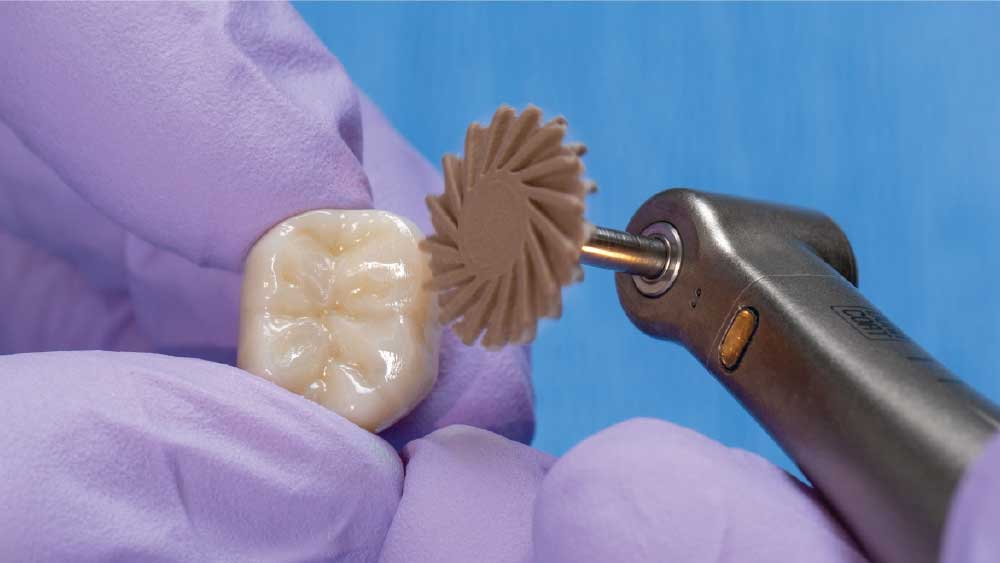
1. Gently remove surface irregularities with the brown polishing disc. Use in circular motions at 7,000–10,000 RPM to make minor adjustments to occlusal surfaces without affecting the anatomy.
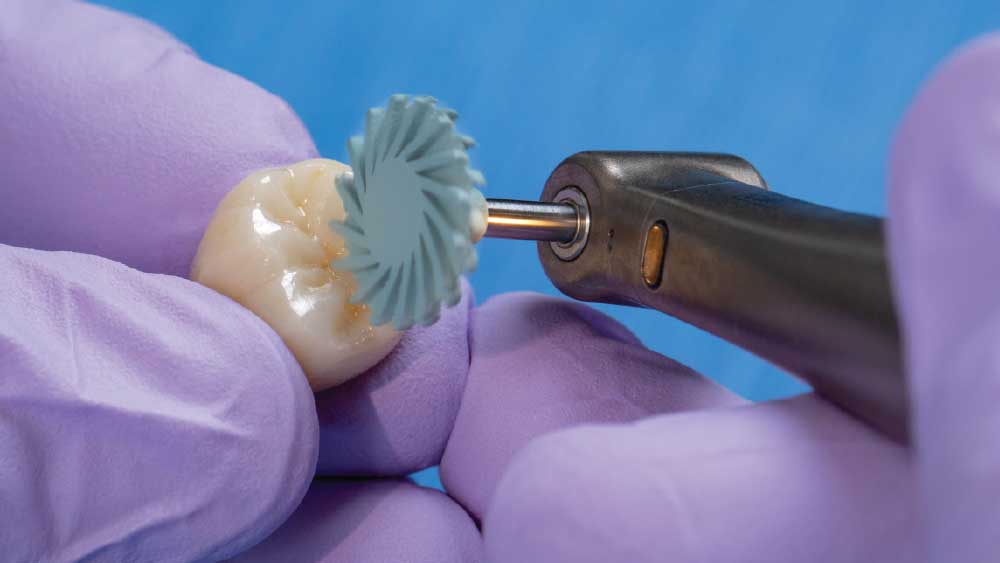
2. The blue polishing disc is ideal for difficult-to-reach areas. Use light to medium pressure at 7,000–10,000 RPM to achieve a natural, high-shine finish in as little as 20 seconds.
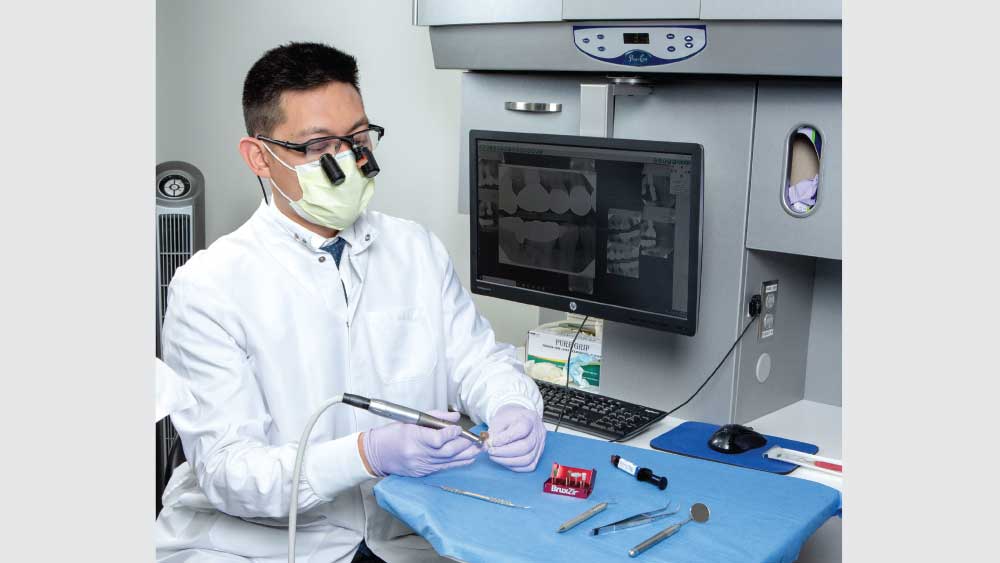
The new and improved BruxZir™ Adjustment & Polishing Kit (Glidewell Direct; Irvine, Calif.) helps simplify the process of fine-tuning and polishing restorations when chairside modifications are necessary.
References
- ^Gou M, Chen H, Kang J, Wang H. Antagonist enamel wear of tooth-supported monolithic zirconia posterior crowns in vivo: A systematic review. J Prosthet Dent. 2019 Apr;121(4):598-603.
- ^Hmaidouch R, Weigl P. Tooth wear against ceramic crowns in posterior region: a systematic literature review. Int J Oral Sci. 2013 Dec;5(4):183-90.
- ^Jang YS, Nguyen TT, Ko YH, Lee DW, Baik BJ, Lee MH, Bae TS. In vitro wear behavior between enamel cusp and three aesthetic restorative materials: Zirconia, porcelain, and composite resin. J Adv Prosthodont. 2019 Feb;11(1):7-15. Published online 2019 Feb 26.
- ^Lawson NC, Janyavula S, Syklawer S, McLaren EA, Burgess JO. Wear of enamel opposing zirconia and lithium disilicate after adjustment, polishing and glazing. J Dent. 2014 Dec;42(12):1586-91.
- ^Rashid H, Skeikh Z, Misbahuddin S, Kazmi MR, Qureshi S, Uddin MZ. Advancements in all-ceramics for dental restorations and their effect on the wear of opposing dentition. Eur J Dent. 2016 Oct-Dec;10(4):583-8.

